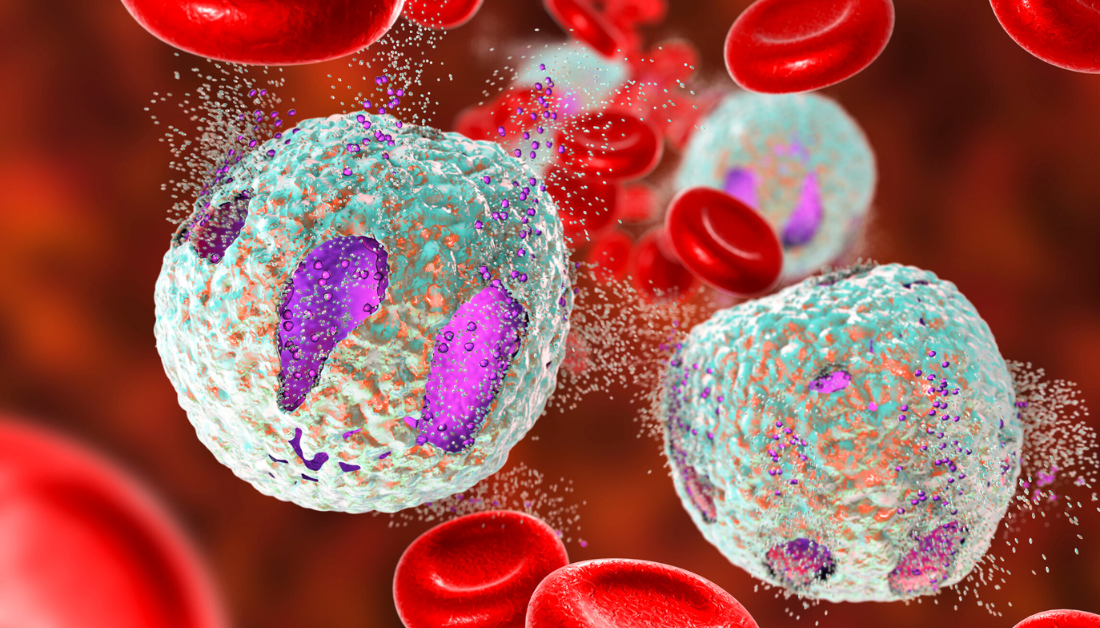

Researchers from Canada examined the use of a multimodal liquid biopsy technique based on cell-free DNA (cfDNA) for early cancer detection in patients with Li-Fraumeni syndrome in a study published in Cancer Discovery.
The researchers discovered that the assay had higher detection sensitivity than unimodal assays and could detect cancer-related signals prior to conventional cancer diagnosis.
Background of Li-Fraumeni syndrome
The genetic disorder Li-Fraumeni syndrome (LFS) is caused by germline mutations in the tumor suppressor gene TP53 (short for tumor protein 53), which increases the carrier’s risk of acquiring at least one type of cancer by up to 100%.
Because early identification is connected with better results in cancer patients, an increased cancer risk need frequent surveillance in the form of diagnostic tests, examinations, and imaging. However, there are significant physical, financial, psychological, and logistical challenges to thorough monitoring of LFS patients.
Liquid biopsy has developed as a viable and less intrusive alternative for detecting cancer-related genetic signals such as circulating tumor DNA (ctDNA) in blood samples, removing logistical constraints to testing.
To address a lack of data on the usage of cfDNA in high-cancer-risk populations such as LFS patients, the current study’s researchers devised a cfDNa-based multimodal strategy to detect a wide range of cancer-related signals in patients.
About the study
In the current investigation, 193 venous blood samples (154 cancer-negative and 39 cancer-positive) were collected retrospectively from 89 people aged 1-67 years with a TP53 mutation (TP53m).
The carriers were divided into three groups: those who had never had cancer (LFS-H, n=42), those who had cancer but recovered (LFS-PC, n=21), and those who had active cancer (LFS-AC, n=26). Around 18 TP53m-carriers were “phenoconverters,” or people who went from being cancer-negative to cancer-positive or had multiple malignancies.
The study’s median clinical follow-up length was 48.1 months. Consistent with earlier research, the current cohort of TP53m-carriers had a higher prevalence of breast cancer than other types.
Blood samples were used to extract DNA and peripheral blood mononuclear cells (PBMCs). DNA libraries were generated for target panel sequencing (TS), shallow whole genome sequencing (sWGS), and cell-free methylated DNA immunoprecipitation sequencing (cfMeDIP-seq) using genomic DNA isolated from PBMCs.
For targeted sequencing mutation analysis and cell-free methylome analysis, bioinformatics tools such as ConsensusCruncher, the Genome Analysis Toolkit, MuTect2, and MedRemix were employed.
Somatic TP53m, copy number, tumor fraction, genome-wide fragmentation score, TP53 fragmentation score, pan-cancer methylation score, LFS-specific, and LFS-breast-cancer methylation score were all determined. Individual and combined assay sensitivities and specificities were calculated.
Results and Discussion
TP53m-carriers had a higher proportion of short DNA fragments (150bp) than healthy controls, which was even higher in cancer-positive TP53m-carriers than cancer-negative ones.
When the genomic, fragmentomic, and epigenomic analyses of 38 cancer-positive samples were combined, a cancer-associated signal was discovered in 81.6% of them, resulting in a sensitivity improvement of 31.6% – 55.8% above unimodal analysis.
The improvement in detection sensitivity was greater in late-stage cancer samples than in early-stage cancer samples. While the false-positive rate within samples was determined to be 18.3%, just 2 out of 57 samples were found to be false negative.
The negative predictive value for cancer-free TP53m carriers was 95.4%, an improvement of 16.6 – 34.6% over unimodal analysis. At a clinically cancer-free stage, a cancer-related signal was found in 35.6% of the patients. However, a concentrated follow-up is required to identify the true false positives among these.
When individual LFS cases were examined, multimodal analysis was found to be as sensitive as, if not more sensitive than, standard clinical screening methods. According to the study, incorporating cfDA-based diagnosis can supplement existing cancer diagnostic and therapy techniques, particularly in high-risk groups.
Because these integrated tests are less invasive, they may allow for more frequent testing in high-risk patients. However, the study’s retrospective approach and the low adoption rate of cfMeDIP-seq in clinical settings compared to TS and sWGS technologies limit its findings.
For improved outcomes, more research is needed to clinically validate this cfDNA-based technique in LFS patients.
Conclusion
In conclusion, the integrated cfDNA technique employed in this study can detect cancer early in LFS patients with higher sensitivity than conventional imaging.
The use of accessible multimodal assays in conjunction with traditional screening modalities has the potential to improve the sensitivity, specificity, and robustness of cancer detection in order to optimize care for high-risk patients.
For more information: Early Cancer Detection in Li-Fraumeni Syndrome with Cell-Free DNA. Cancer Discovery.
doi:10.1158/2159-8290.CD-23-0456
more recommended stories
 Nanoplastics in Brain Tissue and Neurological Risk
Nanoplastics in Brain Tissue and Neurological RiskKey Takeaways for HCPs Nanoplastics are.
 AI Predicts Chronic GVHD Risk After Stem Cell Transplant
AI Predicts Chronic GVHD Risk After Stem Cell TransplantKey Takeaways A new AI-driven tool,.
 Red Meat Consumption Linked to Higher Diabetes Odds
Red Meat Consumption Linked to Higher Diabetes OddsKey Takeaways Higher intake of total,.
 Pediatric Crohn’s Disease Microbial Signature Identified
Pediatric Crohn’s Disease Microbial Signature IdentifiedKey Points at a Glance NYU.
 Nanovaccine Design Boosts Immune Attack on HPV Tumors
Nanovaccine Design Boosts Immune Attack on HPV TumorsKey Highlights Reconfiguring peptide orientation significantly.
 High-Fat Diets Cause Damage to Metabolic Health
High-Fat Diets Cause Damage to Metabolic HealthKey Points Takeaways High-fat and ketogenic.
 Acute Ischemic Stroke: New Evidence for Neuroprotection
Acute Ischemic Stroke: New Evidence for NeuroprotectionKey Highlights A Phase III clinical.
 Statins Rarely Cause Side Effects, Large Trials Show
Statins Rarely Cause Side Effects, Large Trials ShowKey Points at a Glance Large.
 Anxiety Reduction and Emotional Support on Social Media
Anxiety Reduction and Emotional Support on Social MediaKey Summary Anxiety commonly begins in.
 Liquid Biopsy Measures Epigenetic Instability in Cancer
Liquid Biopsy Measures Epigenetic Instability in CancerKey Takeaways Johns Hopkins researchers developed.

Leave a Comment